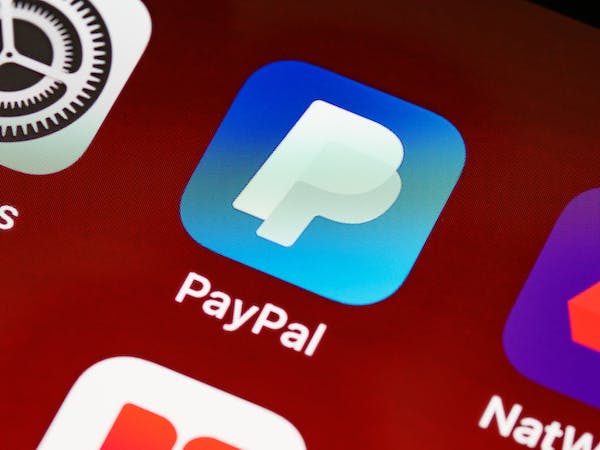Cryptocurrency payment gateways and PayPal are both popular options for accepting payments on WooCommerce websites. They have their own advantages and disadvantages, so let’s compare them in thirteen key aspects:
Transaction Fees
Crypto Payment Gateway: Transaction fees for crypto payments are typically lower than PayPal, especially for international transactions. For example, NOWPayments for WooCommerce, charges only 0.5% per transaction. This can be a significant advantage for businesses looking to save on processing costs. However, it’s important to note that fees can vary depending on the specific gateway you choose since most other crypto payment gateways charge up to 1% of the transaction.
PayPal: PayPal charges fees for each transaction, which can be relatively higher, especially for cross-border transactions. For example, PayPal charges up to 4% or more per transaction. While PayPal is a trusted and recognized payment method, the fees associated with it may impact profitability for businesses.

Currency Support
Crypto Payment Gateway: Cryptocurrency gateways support a wide range of cryptocurrencies, allowing you to cater to a global audience. You can give your customers an option to pay with over 150 cryptocurrencies, hence increasing your customer base. With the increasing popularity of cryptocurrencies, accepting digital assets can attract tech-savvy customers who prefer this form of payment.
PayPal: PayPal primarily deals with traditional fiat currencies such as Dollars and Euros limiting the flexibility for users who prefer to pay with cryptocurrencies. If your business targets customers who predominantly use cryptocurrencies, PayPal might not be the ideal payment option.
Security
Crypto Payment Gateway: Cryptocurrencies are built on blockchain technology, which is known for its strong security features. Blockchain’s decentralized nature and cryptographic protocols make it extremely difficult for hackers to tamper with transactions. However, it’s essential to choose a reputable payment gateway and take precautions against wallet hacks and other crypto-related risks.
PayPal: PayPal is a trusted and secure payment method with a history of protecting user data and transactions. They employ various security measures, such as encryption and fraud monitoring, to ensure the safety of customer information.
Chargebacks
Crypto Payment Gateway: Crypto transactions are irreversible, which means there are no chargebacks. While this can be an advantage for merchants as it minimizes the risk of fraudulent chargebacks, it can be a disadvantage for customers who want refunds or dispute transactions. Therefore, ensure that you specify the refunds policy, so that customers are guided in case they need to legitimately get their money back.
PayPal: PayPal allows customers to initiate chargebacks, providing a safety net for buyers who may have issues with purchases. However, chargebacks can be a disadvantage for sellers if customers misuse this feature, leading to potential revenue loss.
Integration
Crypto Payment Gateway: Integrating a crypto payment gateway may require technical expertise, but there are many plugins available for WooCommerce that streamline the process. These plugins enable businesses to accept cryptocurrencies without significant coding knowledge, making it accessible to a broader range of online stores.
PayPal: PayPal offers a straightforward integration with WooCommerce, and it’s widely supported. With dedicated plugins and seamless integration guides, setting up PayPal as a payment option within your WooCommerce store is relatively simple especially when you are accepting only the traditional fiat currency.
User Adoption
Crypto Payment Gateway: Cryptocurrency adoption is growing, about 400million people own cryptocurrencies, nearly 80% of these population uses their cryptocurrencies to pay for products and services online, though it’s still not as widely used as PayPal. While accepting cryptocurrencies can attract tech-savvy customers, businesses should consider their target audience’s familiarity and willingness to use digital assets as a form of payment.
PayPal: PayPal is a well-established and widely accepted payment method, making it accessible to a broad audience. The majority of online shoppers are familiar with PayPal and may prefer to use it due to its simplicity and wide acceptance.
Regulation and Compliance
Crypto Payment Gateway: Cryptocurrencies operate in a regulatory gray area in many countries, and compliance requirements can be complex. Businesses accepting cryptocurrencies as payment need to consider legal and tax considerations and navigate any potential regulatory hurdles.
PayPal: PayPal is subject to financial regulations in most countries and has established compliance processes, which can be more straightforward for businesses. PayPal’s compliance measures ensure that you adhere to legal requirements when processing payments, providing peace of mind.
Settlement Speed
Crypto Payment Gateway
Processing transactions with cryptocurrencies offers a significant advantage in terms of settlement speed. Unlike traditional payment methods, such as PayPal, where the settlement can take time, crypto transactions typically settle within minutes. This allows merchants to have quick access to funds, enabling better cash flow management and smoother operations.
PayPal
In contrast, PayPal transactions may take longer to settle, especially for international payments. The involvement of multiple financial institutions and varying regulatory requirements across countries can lead to delays in receiving funds. Merchants relying on timely access to their funds may find crypto payment gateways more advantageous in this regard.
Privacy and Anonymity
Crypto Payment Gateway
An important aspect that sets crypto payment gateways apart is the higher degree of privacy and anonymity they offer to users. When making a payment with cryptocurrencies, there is no need to disclose personal information, making it appealing for individuals who prioritize privacy. This increased privacy can also be beneficial for merchants with customers concerned about their personal data security.
PayPal
On the other hand, PayPal transactions are linked to user accounts and require the disclosure of personal information during the registration process. While PayPal takes measures to protect customer data, the fact that it collects and stores this information for regulatory purposes means that transactions are not entirely anonymous. This difference in privacy levels may influence the decision-making process of privacy-conscious users.
Cross-Border Transactions
Crypto Payment Gateway
Cryptocurrencies can simplify cross-border transactions significantly. Traditional banking systems often involve additional fees and delays due to currency conversions. By accepting cryptocurrencies, merchants can eliminate these extra costs and delays. This streamlined process can be particularly advantageous for international merchants or those with a global customer base, enabling faster and more cost-effective transactions.
PayPal
While PayPal is widely accepted internationally, it still involves certain challenges when it comes to cross-border transactions. Currency conversion fees and exchange rate fluctuations can affect the final transaction costs, potentially impacting both merchants and customers. In comparison, crypto payment gateways offer a more efficient and cost-effective solution for conducting cross-border transactions.
Merchant Protection
Crypto Payment Gateway
When it comes to merchant protection, there are some considerations to keep in mind. Crypto transactions are irreversible, meaning that once a payment is made, it cannot be reversed without the recipient’s consent. While this can provide a sense of security for merchants, it also means that there is limited recourse in case of disputes or fraudulent transactions. Merchants should carefully assess the potential risks and implement appropriate measures to mitigate them.
PayPal
One of the advantages of using PayPal as a payment gateway for WooCommerce is the various seller protection features it offers. In cases of disputes or chargebacks, merchants may be eligible for certain protections, depending on meeting specific criteria outlined by PayPal. This added layer of protection can be advantageous for businesses, providing them with peace of mind and security when dealing with customer transactions.
Customer Trust
Crypto Payment Gateway
Despite the growing popularity of cryptocurrencies, some customers may still feel hesitant about using them as a payment method. Factors such as perceived complexity and volatility can impact the level of trust customers have in cryptocurrencies. Merchants considering crypto payment gateways should take into account their target audience and assess whether accepting cryptocurrencies fits their customers’ preferences and expectations.
PayPal
PayPal, on the other hand, is a renowned and trusted payment method with a long history in the industry. Many customers are familiar with PayPal and have already established a level of trust in its services. By offering PayPal as a payment option for WooCommerce, merchants can leverage this existing trust and potentially increase customer confidence in their online store.
Conversion Rates
Crypto Payment Gateway
Accepting cryptocurrencies through a payment gateway can have its advantages in terms of conversion rates. Depending on the target audience, enabling crypto payments can attract tech-savvy customers and crypto enthusiasts who actively seek opportunities to utilize their digital assets. By incorporating this option for WooCommerce, merchants can potentially tap into a niche market segment, driving higher conversion rates and increasing sales.
PayPal
At the same time, it is important to acknowledge that PayPal’s widespread acceptance and familiarity can also positively impact conversion rates. Many users already trust PayPal as a reliable and secure payment method, making it easier for them to complete their purchase. By providing PayPal as an option alongside other payment methods, merchants can cater to a wider range of customers and enhance their overall conversion rates.
Summary
Ultimately, the choice between a crypto payment gateway and PayPal for your WooCommerce store will depend on your target audience, your risk tolerance, and your willingness to navigate the complexities of the cryptocurrency market. Some businesses may even choose to offer both options to cater to a wider range of customers. By considering the transaction fees, currency support, security, chargebacks, integration, user adoption, and regulation and compliance aspects, you can make an informed decision that aligns with your business goals and customer preferences.
 New Year Sale
New Year Sale  Kick Off 2026 With a Whopping 25% OFF! Use Code:
Kick Off 2026 With a Whopping 25% OFF! Use Code: 
 OpenAI
OpenAI Perplexity
Perplexity
Leave a Reply